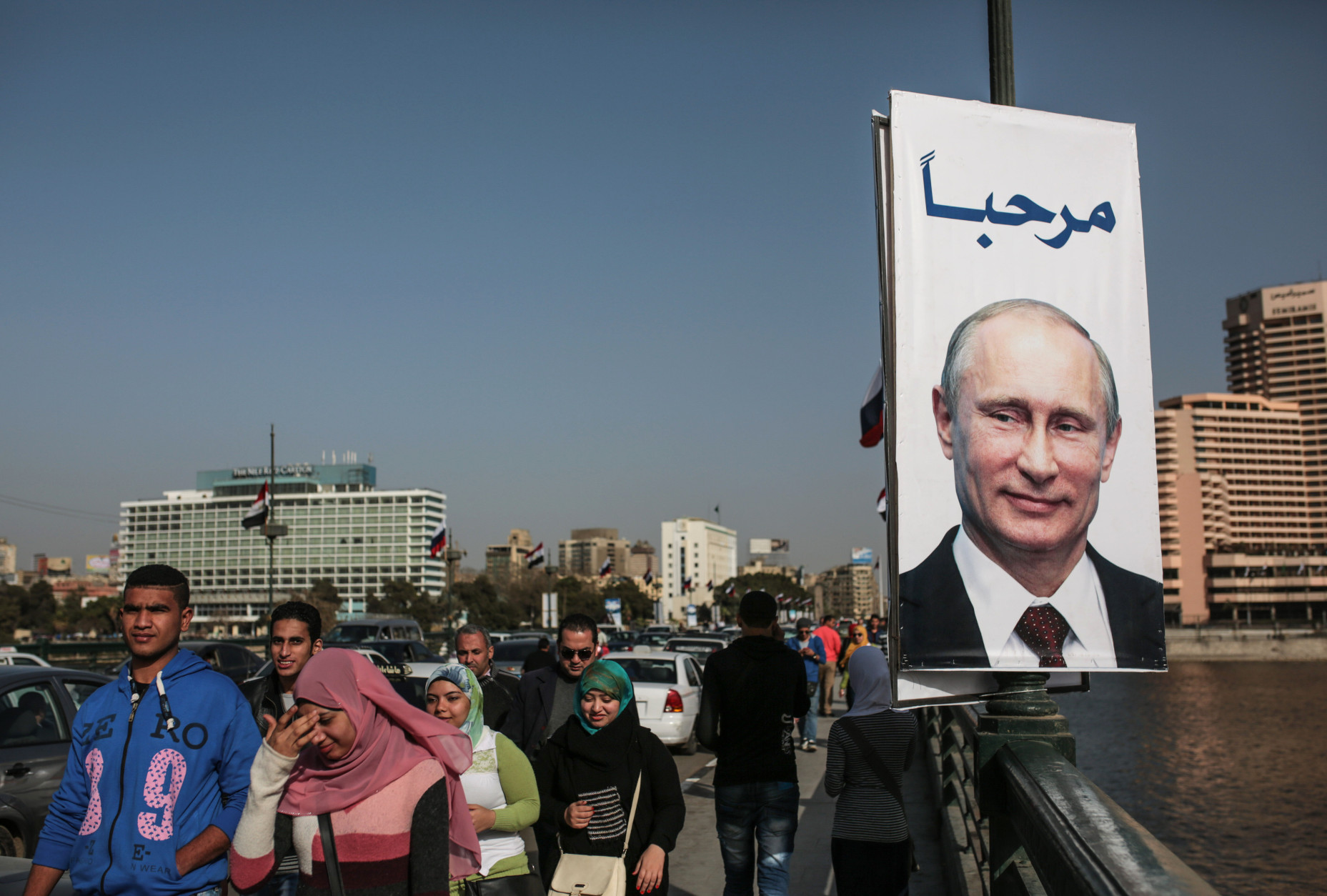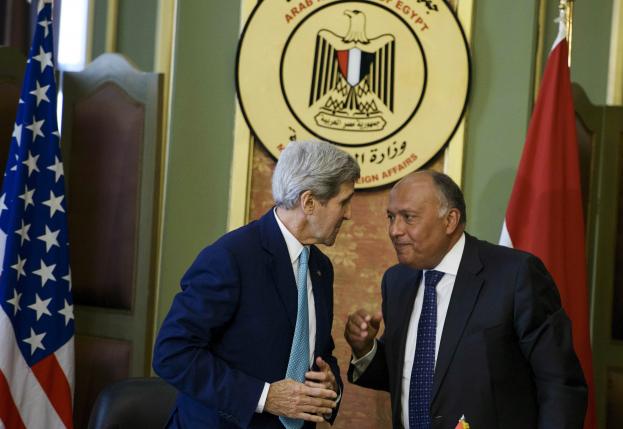The U.S.-Egypt strategic dialogue was reset on August 2 in Cairo which signifies restoration of a full-scale partnership of the two countries at the level of the Hosni Mubarak rule. Cairo seems to cherish the hope of getting back to the previously beloved game of balancing between the two superpowers, obtaining arms and economic preferences and bonuses from both.
The U.S.-Egypt strategic dialogue was reset on August 2 in Cairo which signifies restoration of a full-scale partnership of the two countries at the level of the Hosni Mubarak rule.
The bilateral relationship was shattered in July 2013 when the Egypt's top brass ousted legitimately elected Islamist President Mohammad Morsi. Washington condemned the coup, although never using the word, as well as the subsequent repressions against the Muslim Brotherhood, hinting at possible sanctions and questioning further military aid, which is the key component of their bond.
In October 2013, the United States suspended the pending massive transfer of F-16 fighters, Apache strike helicopters, Harpoon anti-ship missiles and Abrams tanks, maintaining the financial military assistance at practically the same level, which implies the reluctance to have a major brawl. Resumption of deliveries was conditioned by establishment of a democratically elected government. However, successes of the ISIS in Syria and Iraq and jihadists in Libya and the Yemen crisis, propped up by Cairo’s promises to hold parliamentary elections before the end of 2015, have accelerated the reconciliation process.
In March 2015, the Obama administration restarted full-size military aid, while John Kerry’s visit to Cairo coincided with the transfer of eight F-16s, and in June the U.S. House of Representatives approved the 2016 draft budget that provides for unreduced assistance to Egypt.
On the whole, the relationship seems to have returned to Mubarak’s times. Washington keeps blasting Cairo for violation of human rights and democratic liberties, at the same time enthusiastically cooperating in relevant areas, primarily in defense and security sectors, whereas Egypt remains a stronghold of stability in the Middle East and a guarantor of security for the Gulf monarchies.
As a matter of fact, some changes did take place due to the overall degradation of the regional environment. The U.S.-Egyptian dialogue has shifted from bilateral ties to regional problems, first of all to neutralization of the ISIS.
Americans invariably stress that Egypt remains its major ally in countering extremism, which should concentrate on Libya and the Sinai. Besides, Washington would also like to have Egypt engaged in containing Iran.
At the press conference after talks with Egyptian Foreign Minister Hassan Shukri, Kerry underlined that the United States and Egypt were closely watching Tehran’s efforts to destabilize the region.
At the same time, Washington would not give up the issues of human rights and democracy, as Kerry expressed hope to see free and transparent parliamentary elections in Egypt (the lower chamber was dissolved in June 2012, leaving the country without a legislature) before the end of 2015, reiterating President Obama’s words about oppression and disrespect of human rights that foment extremism.
Notably, in fiscal 2018 the White House plans to alter the arrangement for military aid to Egypt, with the money to flow along several channels, including counterterrorism, border protection, Sinai and marine security, and servicing of the available equipment, so that to make the expenditures more controllable and have a leverage to selectively cut the outlays if needed.
Of course, Egyptians are also not quite satisfied, as they would like to get more economic aid and investments. It has not been unnoticed that Kerry stayed in Cairo only one day instead of two, since the economic part of his agenda remained untouched. It seems important because increasingly more Egyptians demand the funds to be spent on economic development rather than on new fighters and frigates.
However, neither democracy grudges nor scarce economic agenda affect the overall trend toward preserving and advancing the mutually beneficial U.S.-Egyptian strategic partnership, which poses a natural question about the future of Moscow-Cairo rapprochement that began about two years ago. A drastic revision appears hardly probable because Russia has helped the Egyptian leaders to tackle several key domestic and international tasks.
Domestically, dynamic cooperation with Russia helps Egyptian leaders create the illusion of independence on the world arena since Moscow is a traditional opponent of Washington, Israel’s main ally. President el-Sisi finds it significant because pro-American orientation had been a key source of resentment to Mr. Mubarak. But now friendship with President Putin helps el-Sisi place the matter on the backburner and draw the parallels with President Nasser who had been amicable with the USSR.
Common Egyptians now see three allies, i.e. Saudi Arabia, China and Russia, the latter rumored to provide Egypt with a miraculous weapon.
Internationally, Cairo seems to cherish the hope of getting back to the previously beloved game of balancing between the two superpowers, obtaining arms and economic preferences and bonuses from both. Friendship with the Kremlin may bring modern weapons at low prices, nuclear technologies and new markets for produce, as well as serve as an effective lever on Washington, especially as the Russia-West dialogue has deteriorated.
Besides, development of ties with Russia may hardly be burdened by extra costs, since Moscow displays no geopolitical intentions in the Middle East and needs neither bases nor military alliances.
Hence, at least in the midterm Russian-Egyptian relations are expected to remain mutually cordial, with the bilateral commitments honored, primarily in the military-technical sphere.






